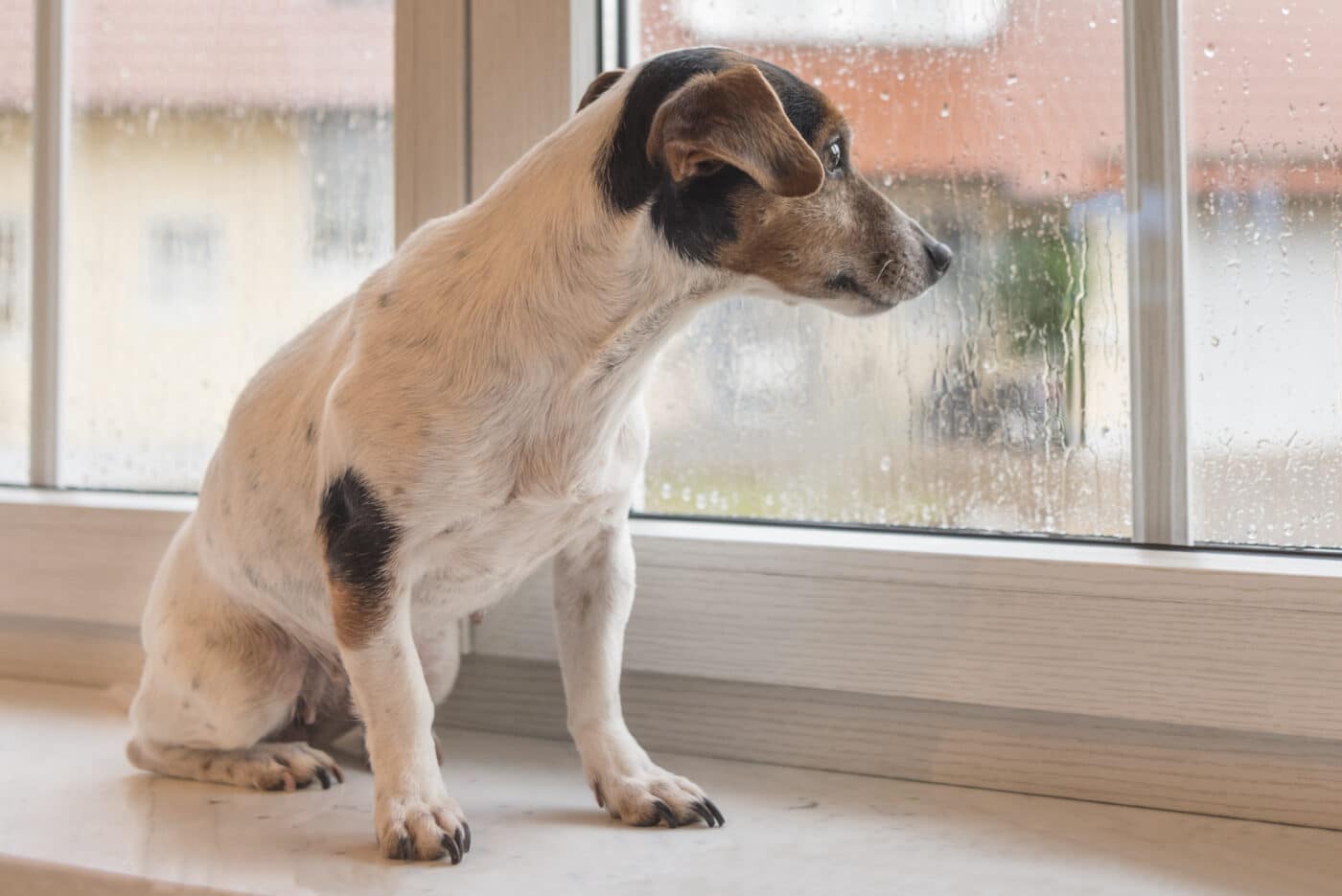 Shutterstock
Shutterstock
Dogs give unconditional love, but even the most loyal companions can sometimes feel overlooked. When they aren’t getting enough attention, they may act out in puzzling or frustrating ways. Some behaviors are subtle, while others are more obvious cries for help. If your dog suddenly acts differently, they might be trying to tell you something. Paying attention to these signals can help strengthen your bond and ensure they always feel loved, valued, and an important part of the family.
Whining or Barking Excessively
 Shutterstock
Shutterstock
A sudden increase in barking or whining could be a clear sign of frustration or loneliness. When dogs feel ignored, they often become more vocal as a way to demand attention. This can range from soft whining to relentless barking, especially if they’ve tried more subtle ways to get noticed. If your dog seems unusually loud, they may ask for more interaction, playtime, or reassurance.
Destructive Chewing
 Shutterstock
Shutterstock
Destructive chewing isn’t always about boredom—it can also be a response to feeling neglected. When dogs lack mental stimulation or affection, they may turn to chewing furniture, shoes, or other household items. This behavior helps them relieve stress and cope with pent-up emotions. If your dog suddenly starts destroying things, it might be their way of saying they need more engagement in their daily routine.
Acting Out During Training Sessions
 Shutterstock
Shutterstock
A dog that usually enjoys learning new tricks but suddenly stops paying attention may feel unappreciated. Dogs thrive on positive reinforcement, and they may lose motivation if they aren’t receiving enough praise or engagement. Ignoring commands or acting out during training sessions could be their way of showing frustration. Keeping training fun, rewarding, and consistent helps reinforce its importance in your life.
Ignoring Commands
 Shutterstock
Shutterstock
If your once-attentive dog suddenly starts acting like you don’t exist, it could be their way of expressing discontent. Ignoring commands, refusing to come when called, or turning away when you speak to them can be signs that they feel overlooked. This behavior is often a response to a lack of interaction or inconsistency in attention. Regular bonding time can help rebuild trust and reconnect.
Excessive Licking
 Shutterstock
Shutterstock
Excessive licking—whether directed at themselves, furniture, or even you—may indicate stress or a need for comfort. When dogs feel neglected, they sometimes develop repetitive grooming habits as a way to self-soothe. This behavior can become compulsive if not addressed, so it’s important to recognize it early. More quality time and affection can help ease their anxiety and prevent it from becoming a bigger issue.
Hiding or Avoiding You
 Shutterstock
Shutterstock
A dog suddenly hiding or avoiding eye contact might feel emotionally neglected. Returning to corners, under furniture, or another secluded spot could be their way of withdrawing from a situation where they feel unimportant. This behavior change can be a red flag, signaling they need more reassurance and positive interaction. Spending extra time with them can help restore their confidence.
Refusing to Eat or Losing Interest in Food
 Shutterstock
Shutterstock
A healthy appetite is a good sign of contentment, so when a dog suddenly loses interest in food, it might be an emotional response. Stress, anxiety, or feeling ignored can cause changes in eating habits. If your dog turns away from meals they once loved, it’s worth considering whether they might be feeling down. Extra attention, exercise, and mealtime engagement can help restore their appetite.
Separation Anxiety
 Shutterstock
Shutterstock
If your dog becomes extra clingy before you leave or destructive when you’re gone, they might be experiencing separation anxiety due to feeling unappreciated. Signs include excessive pacing, whining, scratching at doors, or even having accidents indoors. This often happens when dogs don’t get enough attention during their time with you. Making departures and reunions calm and consistent can help ease their stress.
Acting More Aggressive
 Shutterstock
Shutterstock
Uncharacteristic aggression—such as growling, snapping, or being overly possessive—can sometimes stem from emotional neglect. If a dog feels overlooked, it may act out in frustration, especially when competing for attention. This behavior is often rooted in insecurity, and addressing it with extra love and structured training can help it feel more secure. Recognizing the cause early can prevent it from escalating.
Excessive Sleeping
 Shutterstock
Shutterstock
While naps are normal, excessive sleeping could indicate emotional withdrawal. If a once-playful dog suddenly prefers to sleep through the day, it might be feeling bored or unappreciated. Dogs that lack stimulation or interaction may shut down to cope. Engaging them with new activities, socialization, and extra cuddles can help lift their spirits and bring back their playful side.
Sudden Increase in Boredom
 Shutterstock
Shutterstock
A bored dog is often a mischievous dog. If your dog starts getting into things, it normally wouldn’t—like digging through trash, knocking things over, or shredding pillows—it might be their way of dealing with neglect. Boredom can quickly lead to destructive behavior when there’s not enough physical or mental stimulation. Adding more play, exercise, and interactive toys can help channel their energy positively.
Urinating or Defecating Indoors
 Shutterstock
Shutterstock
If a house-trained dog suddenly starts having accidents inside, it may not just be a training issue—it could be a sign of stress. Emotional distress, loneliness, or a disrupted routine can cause a dog to regress in their behavior. This is often their way of expressing discomfort or seeking attention. Consistency, reassurance, and maintaining a stable routine can help prevent further accidents.
Excessive Scratching or Grooming
 Shutterstock
Shutterstock
Dogs sometimes scratch or groom excessively when they’re feeling stressed, anxious, or ignored. If you notice your dog constantly nibbling at its paws or scratching more than usual, it could be seeking comfort through self-soothing behavior. This can sometimes escalate into skin irritation or hair loss. Ensuring they get plenty of attention and a balanced routine can help break this habit.
Becoming Overly Protective
 Shutterstock
Shutterstock
If your dog starts following you everywhere, leaning against you, or refusing to leave your side, they may feel insecure. Overly clingy behavior can be a way of seeking reassurance or ensuring they aren’t forgotten. This is often a reaction to changes in routine or not getting enough attention. Giving them consistent love, structure, and engagement can help them feel more confident and secure.
Seeking Constant Physical Contact
 Shutterstock
Shutterstock
When a dog suddenly becomes overly protective—whether guarding food, toys, or even its human—it could be a sign that it’s feeling uncertain about its place in the family. This heightened protectiveness often stems from insecurity or a fear of losing attention. Helping them feel more included and reassured can ease this behavior and make them feel safe.
The Silent Treatment Has Gone Furry
 Shutterstock
Shutterstock
When a dog starts acting differently, it’s not always random—it’s their way of communicating. They might not be able to speak, but their big and small behaviors reveal their emotions. Recognizing these signs early can make all the difference in strengthening your bond and ensuring they feel valued. A little extra love, attention, and consistency can go a long way in keeping them happy. After all, they show us unconditional love every day—it’s only fair we do the same in return.





